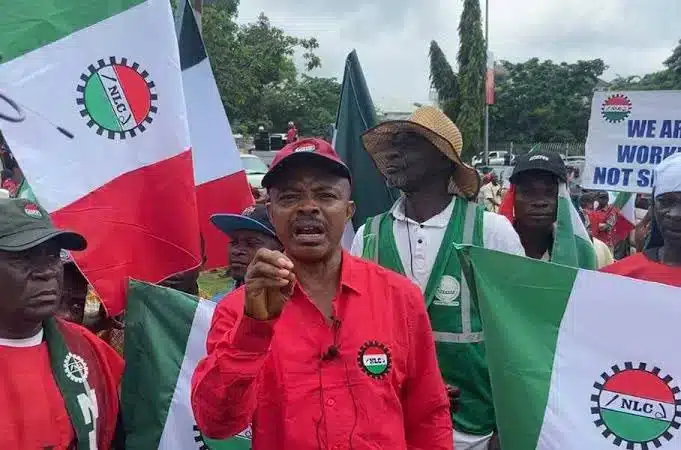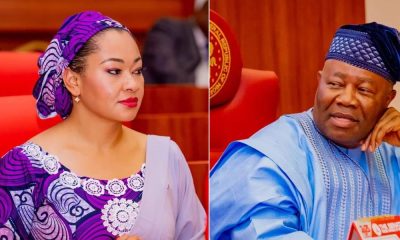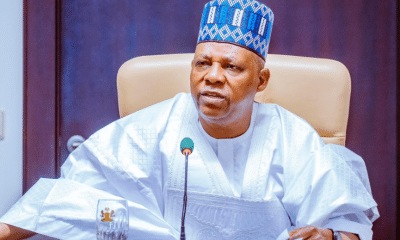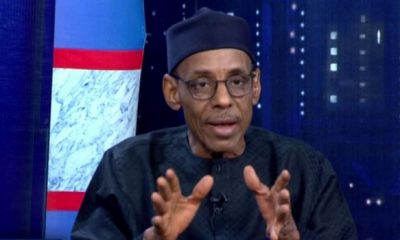Nigeria News
Governors Do Not Have Power To Negotiate Minimum Wage – NLC

The Nigeria Labour Congress (NLC) has rejected the proposal of the Southern Governors’ Forum to decentralise minimum wage negotiations to state governments.
The NLC noted that allowing states to determine their minimum wages would harm workers’ welfare.
Naija News recalls that the Southern Governors’ Forum, on Friday, sought for states to be allowed to negotiate the minimum wage for workers independently.
Reacting to the proposal of the governors, the National Treasurer of the NLC, Akeem Ambali, in an interview with Saturday Punch, insisted that the governors had no power to negotiate the new minimum wage.
He added that the governors were compelled by law to implement the new national minimum wage.
Ambali advised the governors to stop trying to strong-arm the Federal Government and labour with their request to negotiate with labour individually, and instead focus on how they would implement the national minimum wage when it is approved.
Ambali noted that it was regrettable that labour had to always resort to strike actions to get the government to yield to its demands. He asked the governors to make public how much they earn, and subject it to negotiations.
He said, “Traditionally, the minimum wage is a national issue; it is not a sub-national negotiation. That is the essence of the Minimum Wage Act, and the law is clear.
“Governors don’t have the power to negotiate the minimum wage. What they can only negotiate are other allowances, but the minimum wage is a social protection content, and it is not only applicable to Nigeria.
“My advice for the governors is that they should prepare their balance sheet and look at how to implement the national minimum wage once it is approved. They should not stress themselves with the issue of negotiating with Labour on a state level.
“After all, we have seen what happened in Zamfara, where they refused to pay the current minimum wage (N30,000) until Labour issued an ultimatum, and they quickly started paying. Some states are still not paying the current minimum wage.
“We know what happened in Anambra, which is the state of the Vice Chairman of the Southern Governors’ Forum, Charles Soludo. When you look at all that, you will realise that some of them (governors) may not have good intentions. In fact, the majority of them are not labour-friendly and they are not pro-workers.”
Ambali further urged President Bola Tinubu to go ahead and recommend the new minimum wage to the National Assembly after consultation with Organised Labour on the agreement.
He further stated, “It is a tripartite committee. Two are on the same page, because they are employers, and the two cumulatively amount to one, because they are both employees.
“It is only the employees that are agitating, because they are the ones that feel the pinch; they know where it hurts. Mr President should concentrate his energy on engaging Labour with realistic data and statistics, which can be obtained from the Federal Bureau of Statistics. How much does it take to feed a family in a month? We should be guided by that. Once we are able to do that and we are sincere about it, the president can then engage labour, and we will resolve this amicably.”
Speaking on the governors who were still defaulting, Ambali said, “While we commend those who are paying the minimum wage, we also condemn those who are not paying, because they are earning their own fantastic salaries. Maybe the option will eventually be to refer salary payment of governors to the minimum wage as well, so we can also put it up for debate by a committee. Once we are able to do that, nobody will have the effrontery to say they want to first negotiate with workers at the governors’ level”
The labour leader also said it looked like the government was influencing the Organised Private Sector.
He noted that when the negotiations began, the OPS stated that no one earned less than N93,000 in any private establishment. He noted that it was shocking that those same people now wanted to pay less than N70,000.
He added, “This is because of the influence of some of the governors, who tried to cajole them to fall in line. The OPS, if left on their own, are ready to pay, so all these arguments that they are bringing up are afterthoughts.”
The NLC further cautioned state governors against exhibiting dictatorial tendencies.
The congress noted that it was compelled to address the recent statements made by some governors regarding their desire to pay what they deemed fit to Nigerian workers as the minimum wage.












